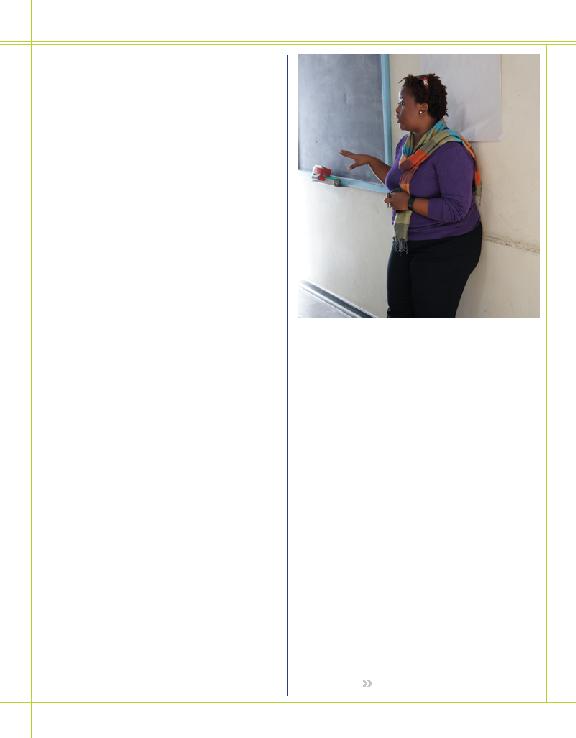
business skills and vocational skills that will allow them to start
their own entrepreneurial business. And through that, they are able
to earn a meaningful income. All of the youth that we take into the
program have been engaged in some kind of informal trade. They
have been selling sweets and chips and so they already have a
sense for business, but it's not a formal business sense. When
money comes in, and if they have a good month for business and
make maybe between $20.00 and $30.00 in that month, that
money generally goes to food, rice, chicken, sweets and that sort
of thing. And so, what we are trying to do is to help them figure
out how to be fiscally responsible, and how to make the business
something viable. We think with the cottage industries that we are
focusing on, the beekeeping, the candle making and the market
gardening, that within each of those industries, they are able to
do something that's actually going to turn into a business that has
good potential for growth.
in Zimbabwe?
on fund-raising, marketing, and advocacy. So, the challenges of
going to Zimbabwe: we started our operations in January of 2010.
All we really had to go on was feasibility study that we had done in
2007 to make sure that there was a need for an organization like
Vanavevhu. I didn't want to just go and create another organization
when there were other groups already there. So it was establishing
yourself from scratch. We had no office; the woman who works as
our program administrator and I used to work from coffee shops,
from the Holiday Inn; we had no transportation. It was sort of
going back home and using the combi (SUV) system again. But
I also think it was a very humbling experience and it made us
really work hard. And then, as we started growing and meeting
stakeholders in the community, we sort of started with the city. We
were given permission in an area in which we could start working,
going into those communities, and talking to the Ward AIDS Action
Committee, talking to the councilors, and telling them that we are
looking for child-heads of households.
of families because it's almost like an indictment on their part.
And also, the feeling that, because they, as a community, might
be looked at as a failure because they have allowed for the
situation where youth are taking care of themselves without any
sort of adult support. It was hard to get that welcome from the
community. And also, because Zimbabwe, in the last 10 years,
has gone through so much that "non-governmental organizations"
(NGOs) crop up everywhere. People were sick and tired of people
coming in; they would do a needs assessment with the promise
that they would come back and nobody really ever comes back.
So it took us quite a while to get that trust from those important
stakeholders and then to find the youths as well. Child-heads
access the mainstream communities and then people just don't
see them. Children that don't have an adult advocate, usually just,
you know, not intentionally, but they are just unseen. And then for
us to find child-heads, we had to get creative on how to find them.
But we tapped into a group of women called Home-based Care
Providers. And once we tapped into that community, they were
able to take us directly to the youths we were seeking.
the program lasts?
situations at home has a need and so it was very lucky that we
chose this very entrepreneurial piece to work with. What we do
is, we look for youth who are heads of households but have been
engaged in some kind of entrepreneurial activities. We are very
intentional in our selection because the kids that we pick need to
have this business sense because that's how the program works.
And let me sort of do this chronologically. Our criteria is that you be
between the ages of 14 and 22, and you have been out of school
because we require you to be in the program Monday through
Thursday from 9 a.m. to 4 p.m. If you are in school it conflicts
with what you are trying to do at school. You have to be the oldest
child in the home. It's not always the eldest because sometimes
the eldest child has left and gone to South Africa or has gotten
married. Or, sometimes the pressure of just having your siblings is
too much. They just leave. So, as long it's the oldest child, we try
as hard as we can to ascertain that they have no extended family
that are involved.